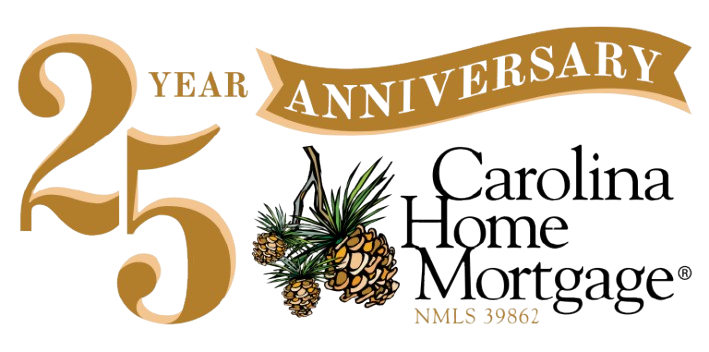What Are Mortgage Closing Costs & Their Advantages?
Have you ever been bombarded by surprise fees when purchasing a home? Most buyers are concerned with out-of-pocket expenses that somehow seem to surface at the final stages of the mortgage process. You may wonder, “What are mortgage closing costs, and why do I have to pay them? “These questions can be frustrating and perplexing initially.
However, knowing what they cover can help you plan better and even save money. In this blog, we break down what mortgage closing costs are, explain their advantages, and share tips for managing them.
At Carolina Home Mortgage, we work hard to help you secure a low closing cost mortgage that fits your budget and keeps surprises to a minimum.
Understanding Mortgage Closing Costs
Closing costs of a mortgage are the costs and charges incurred by you to close your house loan. These are not part of your down payment but involve several services to facilitate the deal. Some of these services include processing fees, appraisal fees, title insurance, and government charges.

The closing cost usually ranges between 2 percent and 5 percent of the total loan value. Although they contribute to your initial cost, the fees are necessary. They protect your mortgage as it is processed, safeguarding both you and the lender.
By knowing what each fee includes, you can plan accordingly and not be surprised on the closing day when you will legally sign for your loan.
Types of Closing Costs
There are a variety of different fees that comprise mortgage closing costs. These are the primary categories:
Lender-Related Fees
These charges pay for work done by your lender. They consist of
- Application fees when you apply for a mortgage.
- Underwriting fees for reviewing your application and ensuring you are creditworthy
- Processing fees for clerical work required to ready your loan.
Title and Escrow Fees
These fees see to it that the legal process of transferring property is done right.
- Title insurance shields you and the lender against defects in the title to the property.
- Escrow fees paid by the company handling the funds and documents throughout the closing process.
Appraisal and Inspection Fees
These fees guarantee that the property is worth the amount paid for it and is in a satisfactory state.
- Appraisal fee covers payment for a professional valuation of the value of the property.
- Inspection fee covers the fee for inspection of the home’s condition.
- Government and recording fees paid to the local government for recording the new deed and mortgage.
- Transfer taxes, in certain regions, are levied when ownership of property changes.
All these fees serve a particular purpose in making your home purchase secure and well-documented.
Benefits of Mortgage Closing Costs
While closing costs contribute to your initial cost, they provide a number of significant benefits:
Transparency and Trust
When closing costs are broken down, you understand what you are paying for. This segmentation creates trust with your lender since you can visualize the worth of each service rendered. Fee transparency makes you know the whole process and gets the transaction to feel even.
Protection for Your Investment
Most closing costs pay for services that safeguard your investment. Title insurance, for instance, shields you from disputes in court about property ownership. Fees for appraisal and inspection make sure you don’t overpay for a property and that it’s in sound shape. These safeguards can rescue you from future costly issues.
Professional Services
Lenders pay professionals such as underwriters, processors, and attorneys to cover their expertise in charging fees. Their efforts help ensure your loan is processed smoothly and efficiently. Paying for these fees equates to having a smooth, professionally handled transaction, minimizing the risk of delay or mistakes.
Opportunity for Negotiation and Savings
Knowing closing costs puts you in control. Various lenders charge varying fees, so you can shop around to find a good deal. You may be able to negotiate some fees to save you money overall. Opting for a low closing cost mortgage can cut your initial cost of money as well.
How to Manage and Reduce Closing Costs
Effective management of closing costs is the secret to making homeownership affordable. Here are a few tips to assist you in lowering these charges:
- Shop for a lender as lenders charge different fees. Ask different lenders for detailed estimates so that you can compare their closing charges. This investigation assists you in identifying the cost-saving choice.
- Negotiate Fees
- Don’t hesitate to ask your lender if any fees can be reduced or waived. If you have a strong credit profile, you may be able to negotiate lower fees, saving you money at closing.
Consider a Closing Cost Loan
A closing cost loan permits you to finance your closing expenses by including them in your mortgage amount. This way, your out-of-pocket costs at the closing are decreased. Just bear in mind that you will incur interest on the fees over the duration of your loan.
Learn About a Low Closing Cost Mortgage
Certain lenders provide mortgage products that have the lowest possible closing costs. A low-cost closing mortgage can be a great option if you wish to have low upfront costs. This product is especially beneficial for first-time homebuyers or individuals with limited cash holdings.
Carefully Examine Your Loan Estimate
When you get your Loan Estimate, read it carefully. If you see a fee that isn’t clear or too high, request an explanation. Being aware keeps you from being surprised and ensures you get a good price.
Loan Choices: ARM Loan or Closing Cost Loan
There are various types of mortgages that may influence your closing costs. Two popular options are the arm loan and the closing cost loan.
What is an ARM Loan?
An arm loan, or adjustable-rate mortgage, begins with a lower interest rate that may fluctuate over time. ARM loans have lower initial costs and are appealing if you expect to sell or refinance before the rate changes. But they come with the risk of future rising rates, so you should think about your long-term intentions.
What is a Closing Cost Loan?
A closing cost loan lets your lender pay your closing costs by rolling them into your mortgage balance. This solution can simplify your cash flow at closing, but it adds to your overall loan amount. Consider the advantages of minimized upfront costs in relation to paying more interest in the long run.
Each loan option has its pros and cons. Select the solution that is most suited to your personal circumstances and future homeownership needs.
Conclusion
Mortgage closing costs are a necessary part of buying a home. They cover essential services like appraisal, title insurance, and processing fees that protect your investment. Though these fees add to your initial expense, they offer transparency, professional support, and a safeguard against future problems. With careful planning and smart strategies—such as shopping around, negotiating fees, or choosing a low closing cost mortgage—you can reduce these costs and keep your home purchase affordable.
At Carolina Home Mortgage, we guide you through the confusion of closing costs and find you a mortgage that is right for you. Our commitment is to make your home buying experience as easy and stress-free as it can be. If you are ready to proceed toward home ownership, contact us today and enjoy a smooth mortgage process with the support you need.
